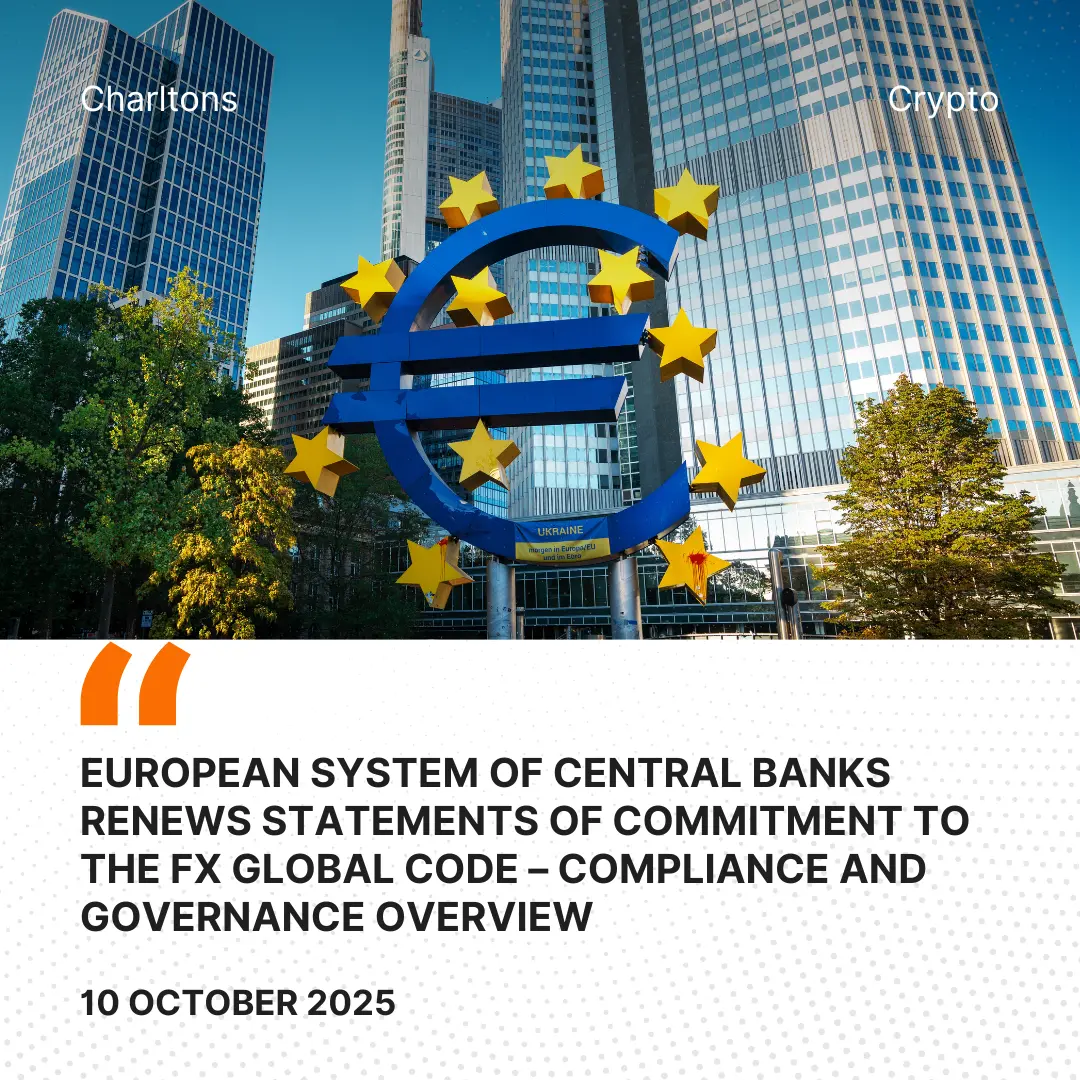
On 9 October 2025, the European System of Central Banks reaffirmed its commitment to the FX Global Code, a global standard of conduct for the foreign exchange market. The Code, first introduced in 2017 and most recently updated in December 2024, defines the principles of fairness, transparency, and integrity that underpin ethical FX market behaviour. The European Central Bank and all national central banks within the ESCB have renewed their Statements of Commitment, confirming that their internal policies and market operations comply with the revised Code. This renewal not only strengthens the integrity of the FX ecosystem but also reinforces confidence in monetary policy transmission through well-functioning financial markets.
The FX Global Code is a set of voluntary principles that promote sound governance and best practices across the global FX market. It is maintained by the Global Foreign Exchange Committee (GFXC) and updated periodically to reflect changes in market structure and technology. The ESCB’s renewal signals to both public and private market participants that adherence to these principles is an ongoing responsibility. By aligning internal operations with the Code, the ESCB ensures consistency between ethical standards and practical implementation across EU central banks, enhancing transparency and reinforcing investor trust.
Regulatory and Compliance Requirements
The FX Global Code was developed as a self-regulatory framework that complements existing laws and supervisory requirements. Its scope spans six dimensions: ethics, governance, execution, information sharing, risk management, and confirmation and settlement. Unlike a binding rulebook, it establishes global behavioural standards that national authorities and financial institutions adopt voluntarily. Through this renewal, the ESCB reinforces that compliance with the Code is a marker of institutional discipline and sound risk governance within FX operations.
Institutions active in FX markets such as banks, dealers, fund managers, and corporates—are expected to ensure that their conduct frameworks mirror the Code’s principles. While non-binding, the ESCB’s leadership effectively transforms adherence into a standard of responsible market participation.
Compliance officers should review the December 2024 revision of the Code, particularly the enhancements related to governance and transparency. Firms should update internal policies, execution protocols, and training to ensure operational consistency with these principles. Renewing and publicly disclosing a Statement of Commitment acts as evidence of ethical alignment and can strengthen regulatory confidence. The ESCB’s example provides momentum for private institutions to follow suit, ensuring market-wide consistency.
Operational Guidance
Conduct a compliance gap analysis comparing existing FX procedures with the Code’s latest provisions.Update internal manuals, trader conduct charters, and risk management policies to align with the revised standards. Issue or renew a public Statement of Commitment accessible on the institution’s website. Integrate adherence monitoring into internal audit and compliance testing cycles. Document counterparties’ commitment to the Code as part of relationship and due-diligence reviews.
Background of Regulatory Developments
- 2017: FX Global Code first published, setting universal standards for market conduct.
- July 2021: First update issued to reflect advances in execution and data usage.
- December 2024: Second update released, refining governance and transparency principles.
- 9 October 2025: ESCB renews Statements of Commitment, confirming compliance with the updated framework.
Timeline of Compliance and Institutional Objectives
|
Short term: |
Review and integrate the December 2024 update into institutional FX governance frameworks. |
|
Medium term |
Embed adherence monitoring into compliance oversight structures. |
|
Long term |
Sustain market-wide discipline, ensuring FX markets remain transparent, ethical, and conducive to effective monetary policy. |





